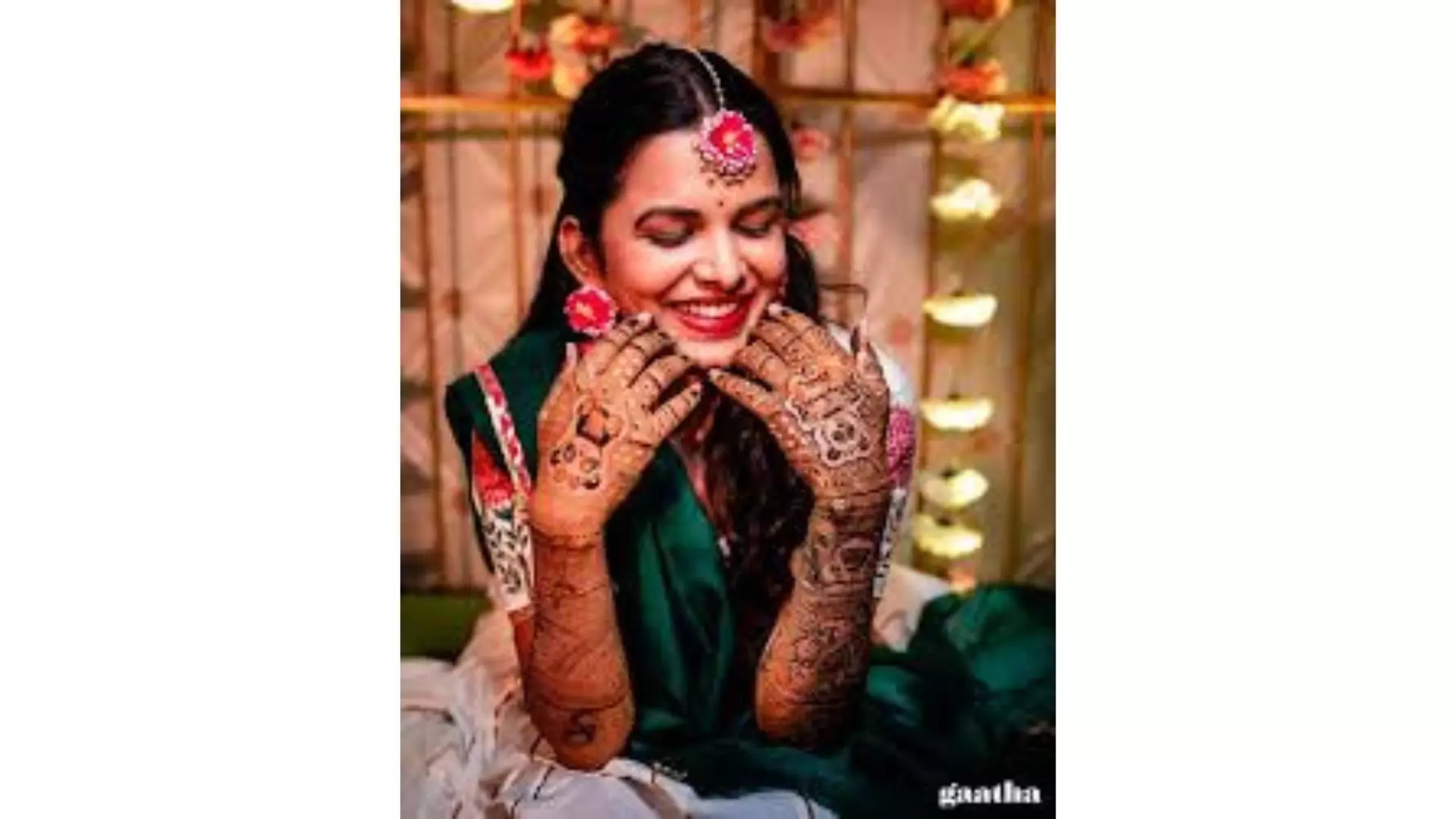Shashi Warrier | Where have all the fun shaadis gone?
A few days later came a surprise call from my ex-professor friend Raghavan: He’d got an invitation to the same function

There was an invitation to a mehendi ceremony on WhatsApp some weeks ago, and I ignored it even though the venue was just down the road. For one, the festivities were due to start at 8 pm, which meant dinner wouldn’t be until past 10, and I’m used to eating at eight. For another, I didn’t know anyone other than the father of the bride, and find it increasingly difficult to make small talk with strangers.
A few days later came a surprise call from my ex-professor friend Raghavan: He’d got an invitation to the same function. “It’s family,” he said. “My wife and I want to attend because there’ll be lots of uncles and aunts and cousins there, and I don’t know when next I’ll get a chance to see all of them.”
“Stay with us,” I told him. “Get here early and we’ll spend some time together before the function.”
“We might be late getting back,” he said.
“I don’t go to bed until one,” I said, “so don’t worry about that.”
They turned up at six, so we chatted for a couple of hours before they left. “I’m really looking forward to this,” Raghavan said as they got into the car. “Quality time with some old folks.”
They were back shortly after 10. “You’re early!” I said, opening the door.
“Yes,” he said. “What a disappointment!”
My wife Prita bustled in. “Have you eaten?” she asked. “They usually serve dinner very late on these occasions.”
“We haven’t,” replied Mrs Raghavan. “We just wanted to get away from there. But don’t bother, we’re not hungry.”
“I can’t let you go to bed without a meal!” said Prita and went off to the kitchen to scramble some eggs.
“What happened?” I asked.
“They had an MC on a stage, and what they called a variety programme,” replied Raghavan. “All kinds of music, with a heavy bass. It was so loud we couldn’t hear ourselves think!”
“Terrible!” I said. “Why did they have it so loud?”
“I don’t know,” said Raghavan, “but everyone else there seemed to like it! Even the old folks!”
“What was the variety programme like?” I asked.
“Well,” he replied, “there were dancers on stage. Young women dancing like in the movies. Yes, a sort of amateur version of what you see in the movies. And people from the audience, youngsters, joined in from time to time.”
“Don’t forget the MC and his terrible jokes!” interjected Mrs Raghavan. “He was this stout young fellow in a black jacket with spangles on it that glittered while he moved. And a confetti machine that shot little bits of paper into people’s hair.”
“And games,” added Raghavan. “For children.”
“What did the oldies do?” I asked.
“We watched,” said Raghavan. “The music was so loud we couldn’t have a conversation without shouting.” He went philosophical. “I suppose youngsters need to be entertained all the time. They’re losing some skills that were essential when we were young. So when people gather, they don’t talk and get to know each other. We’re increasingly distant from people in our extended families.”
“It’s not all good, socialising,” said Mrs Raghavan.
“What do you mean?” Raghavan asked.
“Well, as I remember it,” Mrs Raghavan said, “we used to discuss other people behind their backs at these social gatherings. The talk was mostly of scandals and mistakes and how ugly or bad or unlucky some other people are. That’s hardly better than loud music and imitation movie dances.”
“That was only a small part of it,” said Raghavan. “When I was young, we got to know our elders better when we met them on those occasions.”
“I don’t know how it was for you before we met,” replied Mrs Raghavan, “but I remember at least half a dozen family functions that we attended in the first few years after we got married, and what you told me about some of your relatives when you were sure they couldn’t hear. There was that distant uncle of yours who used to ask everyone for a little loan, to be repaid in two weeks… Just a few thousand rupees. There was that widowed aunt who had inherited plenty of property when her husband died, and got more from her sons, but always dressed as if she were a pauper. There was that other old man who was supposed to have murdered his wife, and the lady who had three husbands…”
“That’s just what you remember,” said Raghavan. “It’s easier to remember bad stuff than good. But we did get to know about where people were, and what jobs their children got…”
“I know,” said Mrs Raghavan. “There was that time your nephew got a job with a British bank and his parents were so proud of him but you told me that he got that job only because he was willing to bend the rules.”
I sensed trouble. As if on cue, husband and wife turned to me. “What do you think?” they asked in unison.
Prita came back just then to announce that dinner was ready. “It’s very simple,” she said. “Just scrambled eggs and parathas and some leftovers.”
“That’s plenty,” said Mrs Raghavan. “Sorry to bother you.”
We made our way to the dining room, and Raghavan told Prita about socialisation and scandal and gossip and the modern tendency to depend on entertainment. “What do you think?” he asked, perhaps unwisely.
“We used to gossip at these affairs,” Prita said. “No doubt about it! And it was fun!”
Raghavan looked at me as if to ask what I thought. I shrugged and took another helping of scrambled egg. “Like she says,” I said, digging in.

